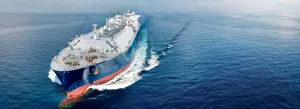IMO Identification
The International Maritime Organization (IMO) members realised the requirement for establishing of a mechanism to enhance maritime safety, achieve pollution prevention and facilitate the prevention of maritime fraud.The IMO in the year 1987 adopted resolution A.600 (15) which became mandatory 1st January 1996 onwards. Every merchant ship which is self propelled and above 100 Gross Ton is assigned a 7 digit permanent number for identification purposes at time of construction irrespective of which flag the ship flies or trades under.The IMO identification is never reassigned and in accordance with SOLAS regulation XI-1/3 is required to be prominently displayed on the hull or stern of a ship. Exceptions to IMO numbering ,besides others ,are yachts, floating docks , warships and hopper barges.
 Credit UNCTAD
Credit UNCTAD
Registry
In a traditional registry or closed registry the owner of the ship should necessarily hail from the country of registration and the place of business should be in the country of registration as should be crew members.Such registry permits ships to be requisitioned in times of conflict for transportation of goods and people . Open registers are ship registers that allow ship owners of other nationalities to flag and operate ships under their flag known as Flag of Convenience (FOC) which is a type of open registry offering an attractive fiscal regime and substantially lower administrative charges and an inequitable salary structure .Shipping safety and pollution controls are invariably compromised.FOC is a pejorative term used for an open registry.
 Credit The Geography of Transport Systems
Credit The Geography of Transport Systems
UNCLOS
By linking a ship to a state the system of ship registration indicates that the state has an inherent right to protect that ship in accordance with international law. A fundamental principle in public international law is the freedom of the high seas stipulated in article 87 of United Nations Law of the Sea (UNCLOS). To balance this freedom with the need to avoid disorder and misuse international law has provided a framework for the regulation of shipping. This framework rests upon two core principles:
i) each State shall fix the conditions for the grant of its nationality to ships, for the registration of ships in its territory and for the right to fly its flag (article 91 of UNCLOS)
ii) the State must effectively exercise its jurisdiction and control in administrative, technical and social matters over ships flying its flag (article 94 of UNCLOS)
Advantages of Open Registry
Open registration reduces operational costs of a ship, relaxes requirements on vessel quality as FOC countries do not intervene in operations, have practically no vessel inspection or maintenance nor insist on nationality of sailors. As per UNCTAD foreign registration ,in dead weight tonnage terms, increased from 41 % in 1989 to 73 % in 2014 .Traditional maritime countries and the international environment are affected by FOC registry .In order to lure merchant fleets to their national flags traditional maritime countries resort to various marine policies such as incentive-based approach offering cargo reservations, cabotage, port surcharges, maritime subsidies and tax benefits. The intent being that such second registry maintains a merchant fleet under the national flag for control as well as leveling the operational costs for commercial ships. Traditional maritime countries who have established second ship or offshore registers are Norwegian International Ship Register and the Danish International Ship Register . Germany, France, Brazil, and Italy have followed suit.Merchant Navy ships which do not conform to the highest international maritime safety and pollution control standards are registered in FOC countries. European countries are endeavouring to regain their space in the registry arena through an incentive oriented approach without compromising on maritime safety.It would be in the fitness of things if South Asian countries and Middle Eastern oil producing countries (with cash surpluses) frame registry policies to draw away commercial fleets from FOC countries with dubious maritime safety and pollution control standards.
By Nadir Mumtaz

Leave A Comment